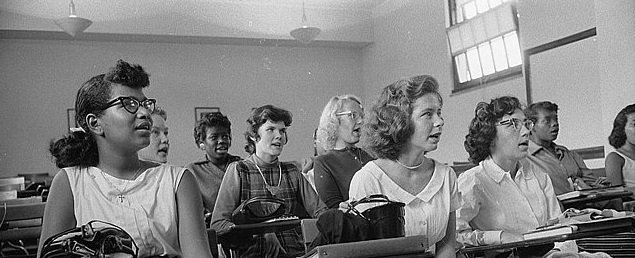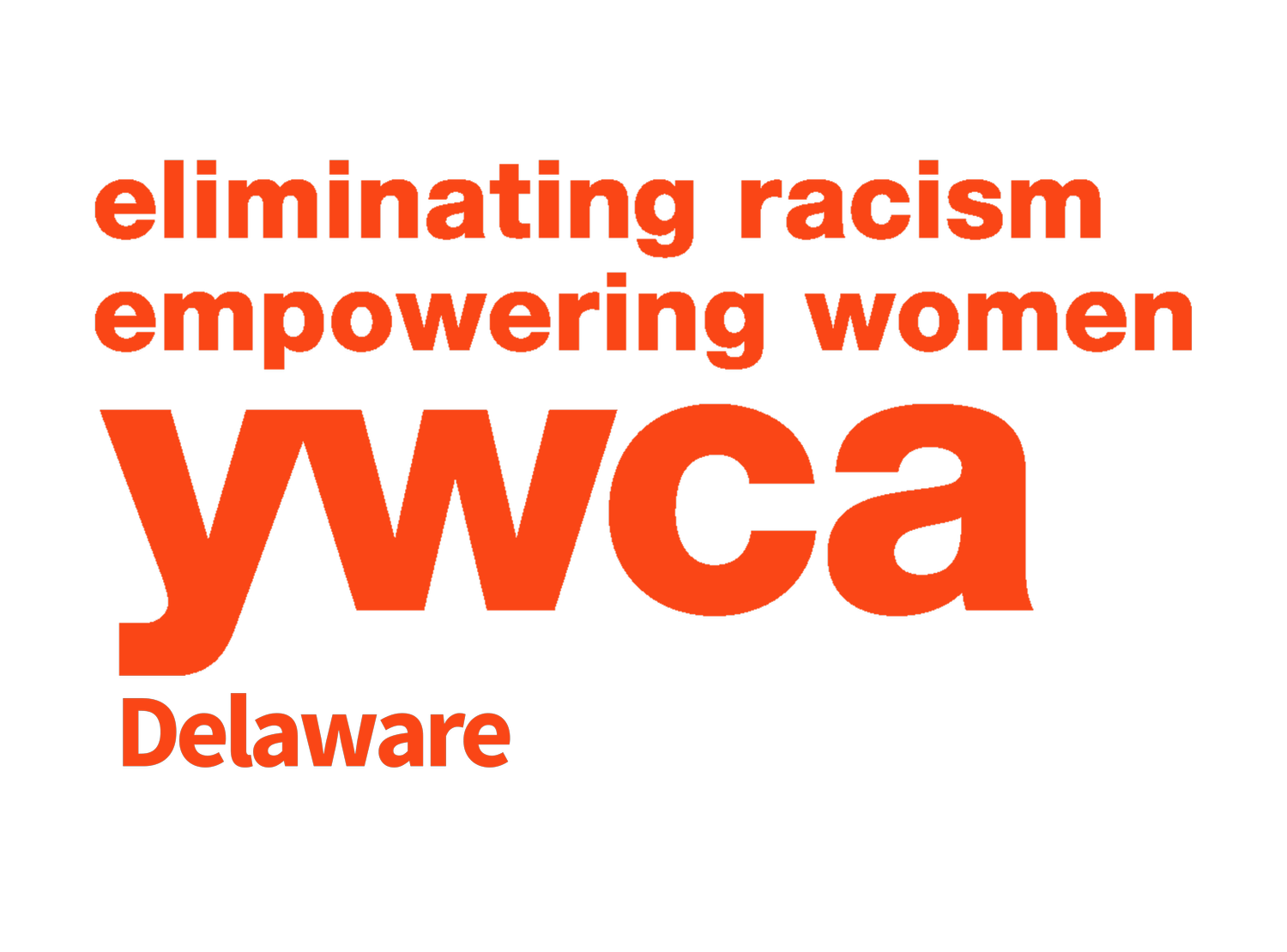
Champions of Education Equality
Join us in celebrating and honoring incredible leaders in the field of education who have made significant contributions to the advancement of all citizens. These trailblazers have dedicated their lives to fighting for equality, breaking barriers, and empowering future generations.
Malcolm X
“Education is the passport to the future, for tomorrow belongs to those who prepare for it today.”
-

Edwina Kruse (1848 - 1930)
As the first African American woman to serve as a principal in Delaware, Edwina Kruse was a pioneering educator who fought for better educational opportunities for students. Her appointment to this position at Howard High School in Wilmington (which was for many years, Delaware’s only business and college preparatory high school for African Americans serving the entire state). Kruse’s appointment as principal marked a significant milestone in the state's educational history, breaking barriers and paving the way for future generations of educators and leaders.
Among the Howard students during her time as principal were civil rights lawyer Louis L. Redding and teacher and activist Pauline A. Young. When Booker T. Washington visited Wilmington in 1900, he stayed with Kruse.
Throughout her career, Kruse was a steadfast advocate for educational equity and excellence. She worked tirelessly to ensure that students at Howard High School received a quality education, despite the challenges of segregation and limited resources. Kruse's dedication to providing opportunities for students helped to uplift and empower generations of young people, contributing to a more educated and equitable society.
Beyond her role as a school principal, Kruse was deeply engaged in her community and served as a mentor and role model to countless individuals. She helped establish the state's Industrial School for Colored Girls, which was renamed for Kruse in 1943; it was later merged with a white girls' reformatory, before being absorbed in a co-educational state program in the 1980s. She also helped create the Sarah Ann White Home for the Aged in Wilmington. She was one of the organizers of Wilmington's branch of the NAACP in 1914, and hosted an early meeting of the group in her home.
She believed in the importance of nurturing and supporting young people, and her mentorship left a lasting impact on the lives of those she encountered.
-

Louis L. Redding (1901 -1998)
Louis L. Redding became the first African American lawyer in Delaware in 1929, breaking significant racial barriers in the legal profession within the state. His admission to the bar was a groundbreaking achievement and paved the way for future generations of Black lawyers.
Redding was a pivotal figure in the landmark Supreme Court case Brown v. Board of Education, which led to the desegregation of public schools in the United States. He represented the plaintiffs in Delaware cases that were consolidated into Brown v. Board of Education, arguing against the "separate but equal" doctrine.
Throughout his career, Redding was deeply involved in the civil rights movement, fighting for the desegregation of schools, public accommodations, and housing. His legal work contributed significantly to the dismantling of institutionalized racial segregation and discrimination in Delaware and beyond.
-

Jane E. Mitchell (1921 - 2004)
A dedicated civil rights activist and social worker, Jane E. Mitchell worked tirelessly to improve the lives of African Americans in Delaware and was a staunch advocate for women's rights. Mitchell was the first African-American to work as a nurse in Delaware and the first African-American to serve as a member of the Delaware State Board of Nursing. She went on to work as the director of nursing at the Delaware State Psychiatric Hospital.
As a civil rights activist and volunteer, she was dedicated to empowering women, particularly African American women, by promoting educational opportunities, economic independence, and political participation. Her efforts helped to lay the groundwork for future advancements in gender equality. -
Marian Wright Edelman (1939 - Present)
Marian Wright Edelman is the founder and president emerita of the Children's Defense Fund (established in 1973), a leading nonprofit organization dedicated to advocating for children's rights and welfare. Under Edelman’s leadership, CDF has been instrumental in shaping national policies and programs that address child poverty, access to education, healthcare, and juvenile justice.
Through her advocacy work with the Children's Defense Fund, Marian Wright Edelman has influenced numerous pieces of legislation aimed at protecting children's rights and improving their well-being. Examples include the passage of the Children's Health Insurance Program (CHIP), which provides healthcare coverage to millions of children, and the expansion of federal nutrition programs that support child nutrition and development. -

Dr. Darling-Hammond (1951 - Present)
Dr. Darling-Hammond is currently the President of the Learning Policy Institute, a think tank dedicated to improving education policies and practices. She has also served as the President of the California State Board of Education and as a professor at Stanford University.
Throughout her career, Dr. Darling-Hammond has been a vocal advocate for educational equity. She has focused on closing achievement gaps, ensuring access to high-quality education for all students, and promoting policies that support disadvantaged communities.
She is the author or co-author of numerous influential books and articles on education policy and reform. Her research has shaped national discussions on topics such as teacher preparation, school leadership, and the impact of socioeconomic factors on educational outcomes.
Dr. Darling-Hammond's work has had a significant impact on education policy at both state and national levels. She has advised policymakers and educational leaders on strategies to improve educational equity, teacher effectiveness, and overall school performance.
She has received several awards and honors for her contributions to education, including the Harold W. McGraw Jr. Prize in Education and the Brock International Prize in Education.
-

Dr. John B. King Jr. (1975 - Present)
Former U.S. Secretary of Education Dr. John B. King Jr. has prioritized educational equity and civil rights enforcement, particularly through initiatives focused on closing achievement gaps and addressing disparities in school discipline and resources. He has advocated for policies to expand access to high-quality early childhood education, college affordability, and career and technical education programs.
He is the 15th Chancellor of the State University of New York (SUNY), (the largest comprehensive system of public higher education in the United States) and previously served as President & CEO of The Education Trust, a national civil rights nonprofit which seeks to identify and close opportunity and achievement gaps for students from preschool through college.
As the former Commissioner of Education and President of USNY, Commissioner King worked with the Board of Regents to pursue an ambitious education reform agenda. King has played an integral role in coordinating inter-agency work on My Brother's Keeper including allowing as many as 12,000 prison inmates to apply for federal Pell grants to finance college classes, despite a 22-year congressional ban on providing financial aid to prisoners.
Fact about Civil Rights and Education
Belton V. Gebhart
Belton v. Gebhart was a landmark court case decided in 1952 in Delaware that challenged the segregation of African American students in public schools. The plaintiffs, represented by attorney Louis Redding, argued that the separate facilities provided for Black students were inferior to those for white students, violating the "separate but equal" doctrine established by Plessy v. Ferguson.
Chancellor Collins J. Seitz ruled in favor of the plaintiffs, ordering the immediate integration of the state's public schools. This decision was significant as it was one of the five cases combined into the historic Brown v. Board of Education decision by the U.S. Supreme Court in 1954, which ultimately led to the desegregation of public schools across America.
HB 198 - Teaching Black History
In 2021, Delaware legislators passed HB 198, requiring all public schools - both district and charter - to infuse instruction of Black history and experience into K-12 curricula.
Read the Delaware Black History Education Annual Report here.
College Completion Gap
There are significant disparities in college enrollment and completion rates among racial and ethnic groups. According to data from the National Center for Education Statistics (NCES), in 2018, the college enrollment rate for White high school graduates (ages 18-24) was 42%, compared to 35% for Black graduates and 36% for Hispanic graduates.
First Racially Integrated School in DE
The Claymont Stone School, also known as Naaman’s Creek School #1 was built in 1805 and suggested that it may be the first racially integrated public school in the State of Delaware.
Teaching Black History Challenges
Lawmakers in 30 states have proposed new restrictions during the past year on what schools can teach about the nation's racial history.
Howard High School
Howard High School (now Howard High School of Technology) in Wilmington, DE was the first school in Delaware to offer a complete high school education to Black students and was one of the earliest Black secondary schools in the United States. Up until the 1950’s Howard High was the only public secondary school for African Americans in Delaware.
High School Completion Gap
The high school graduation rate for Black and Hispanic students has been improving over the years but remains lower than that of White students. As of the 2019-2020 school year, the overall graduation rate was 81% for Black students and 82% for Hispanic students, compared to 89% for White students.
YWCA Delaware's Racial and Social Justice (RSJ) program helps to transform communities by awakening consciousness, promoting inclusion and solidarity, and cultivating civic engagement in individuals and organizations to advocate for justice and inspire a movement.
Explore Our Journey to Freedom
Mile Markers
-
Courageous Leaders of the Abolitionist Movement
-
Pioneers and Leaders of YWCA
-
Civil Rights in America
-
Celebrating Voting Rights Champions
-
Spotlighting Reproductive Justice Advocates
-
Champions of Education Equality
-
Advocates Driving Criminal Justice Reform
-
Pioneers of Housing Justice
-
Youth Leaders of America


